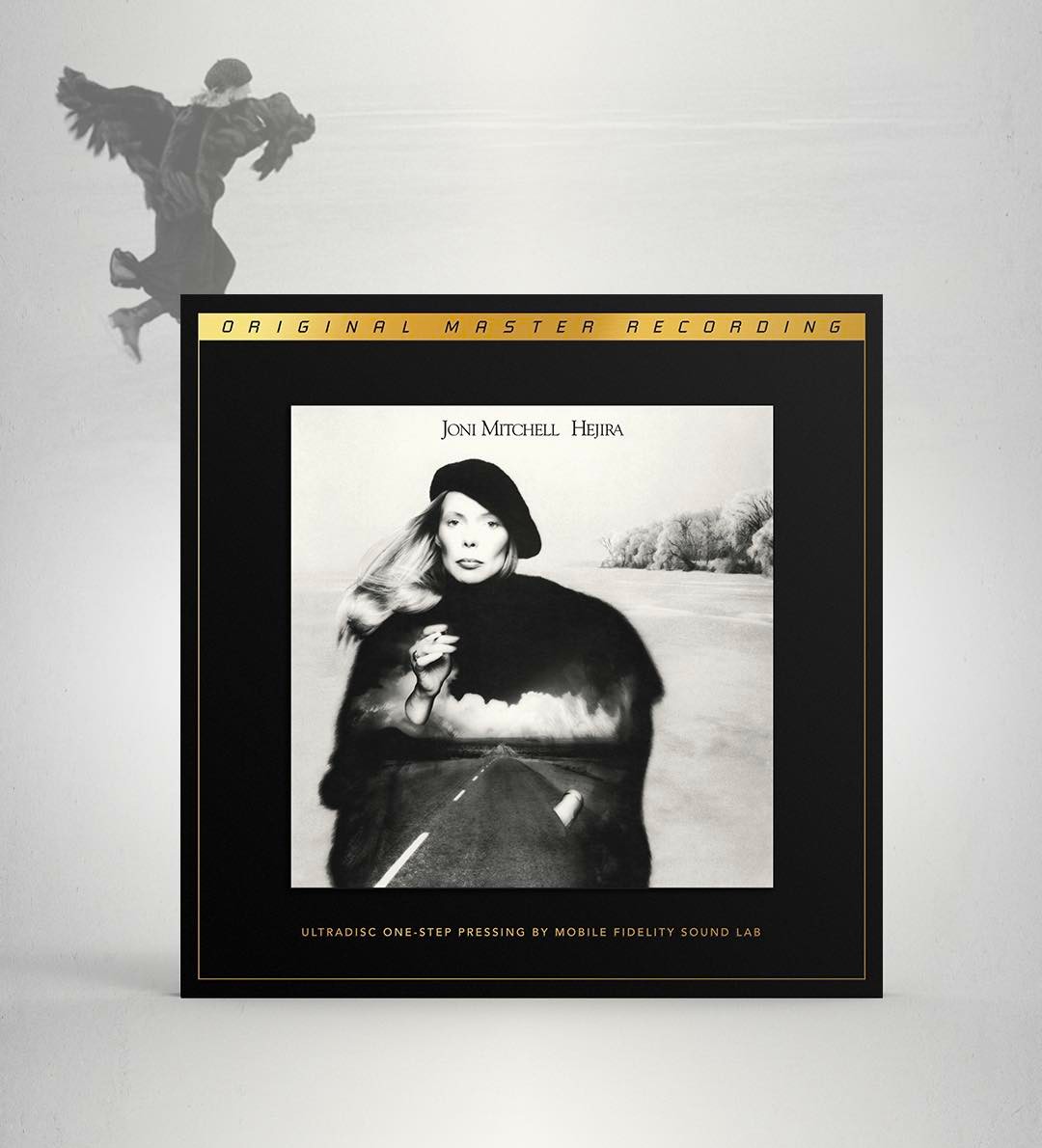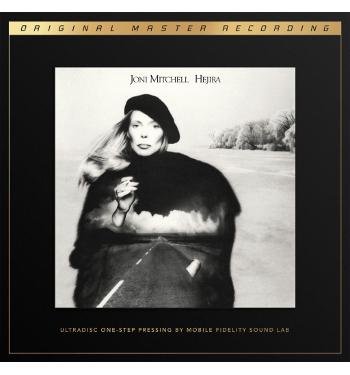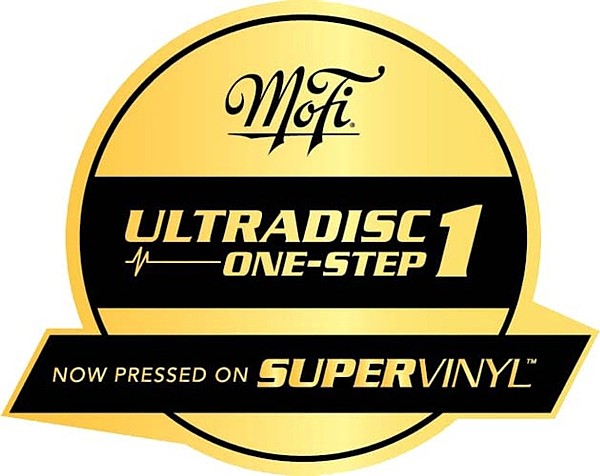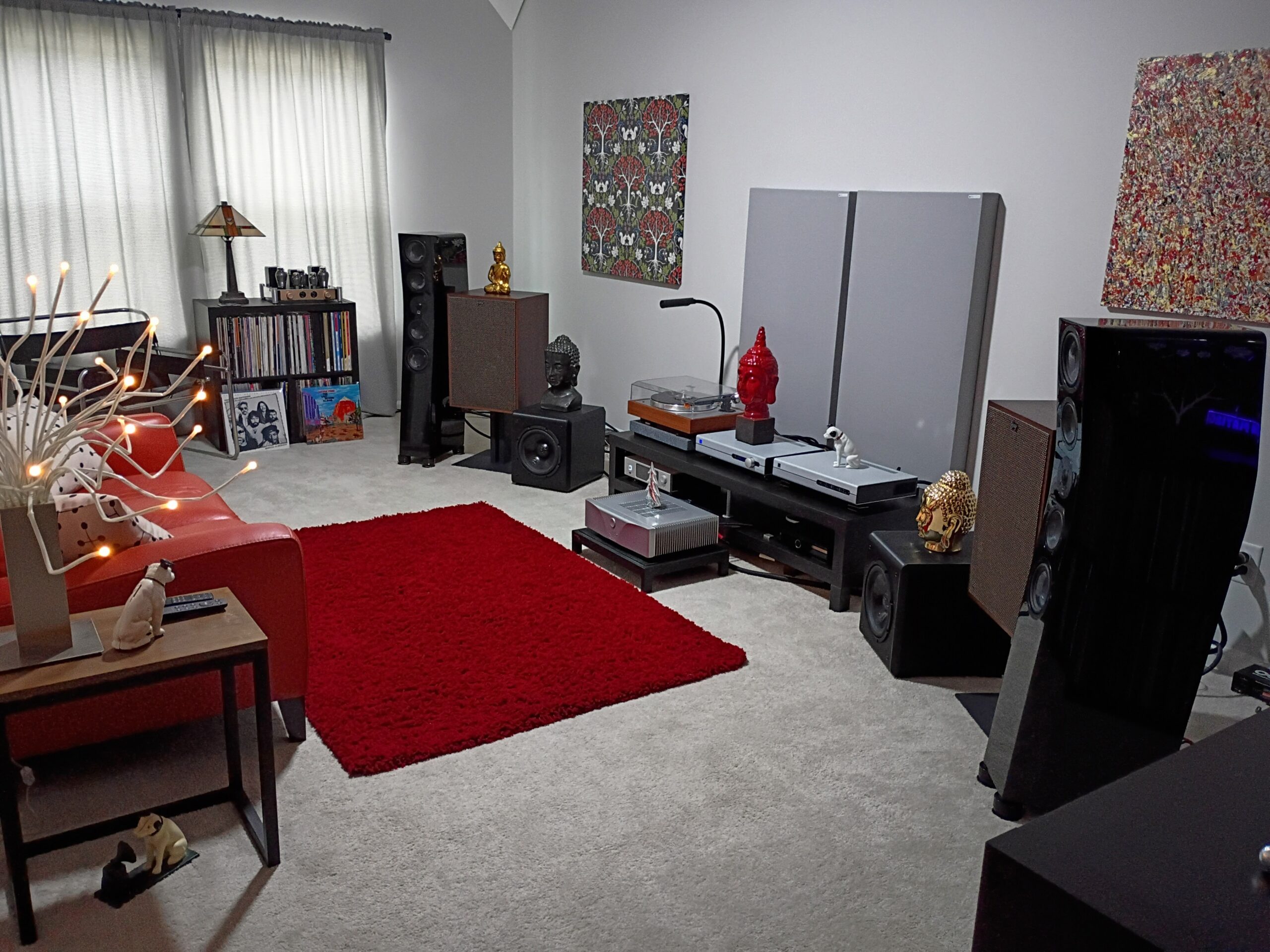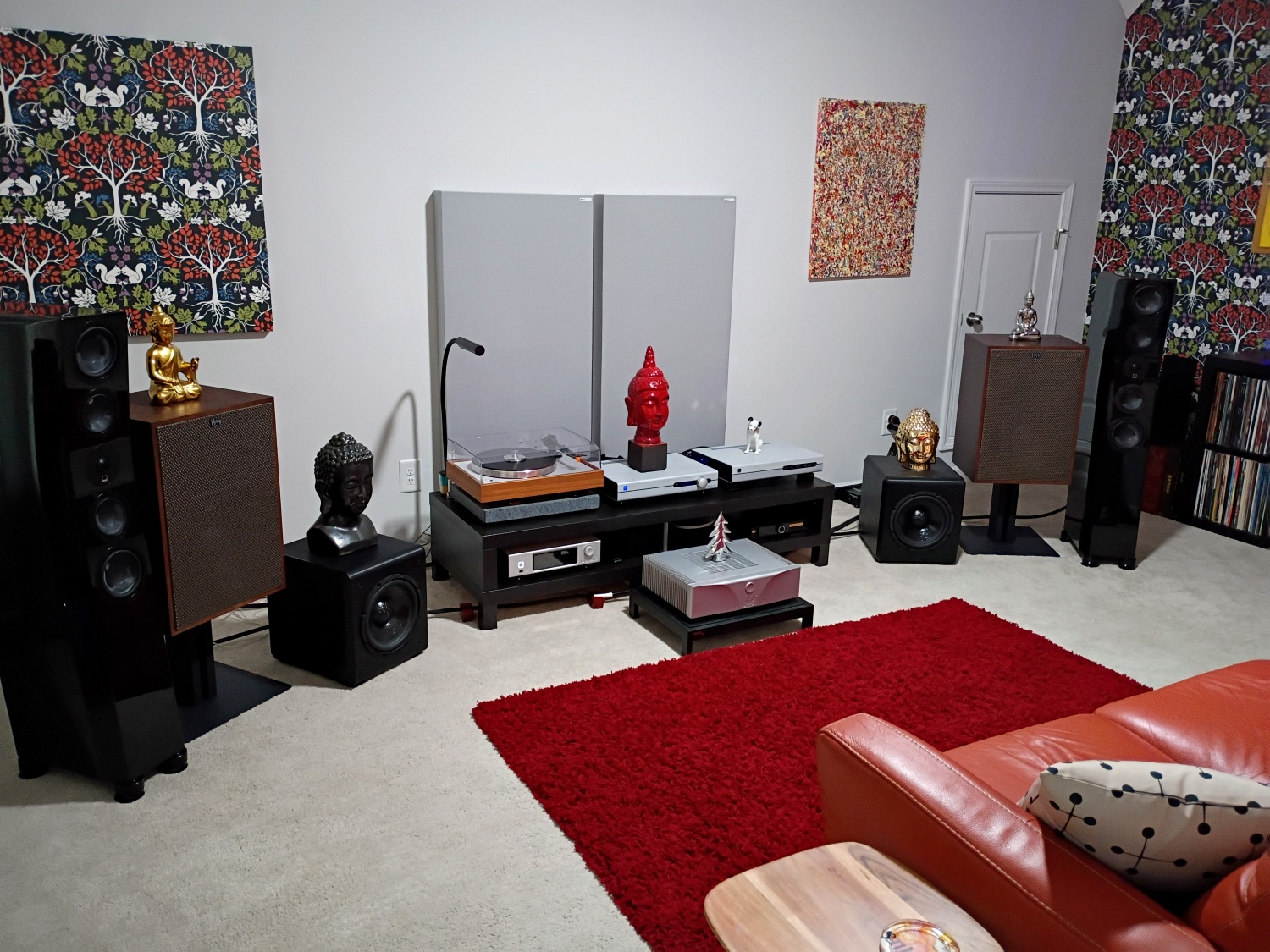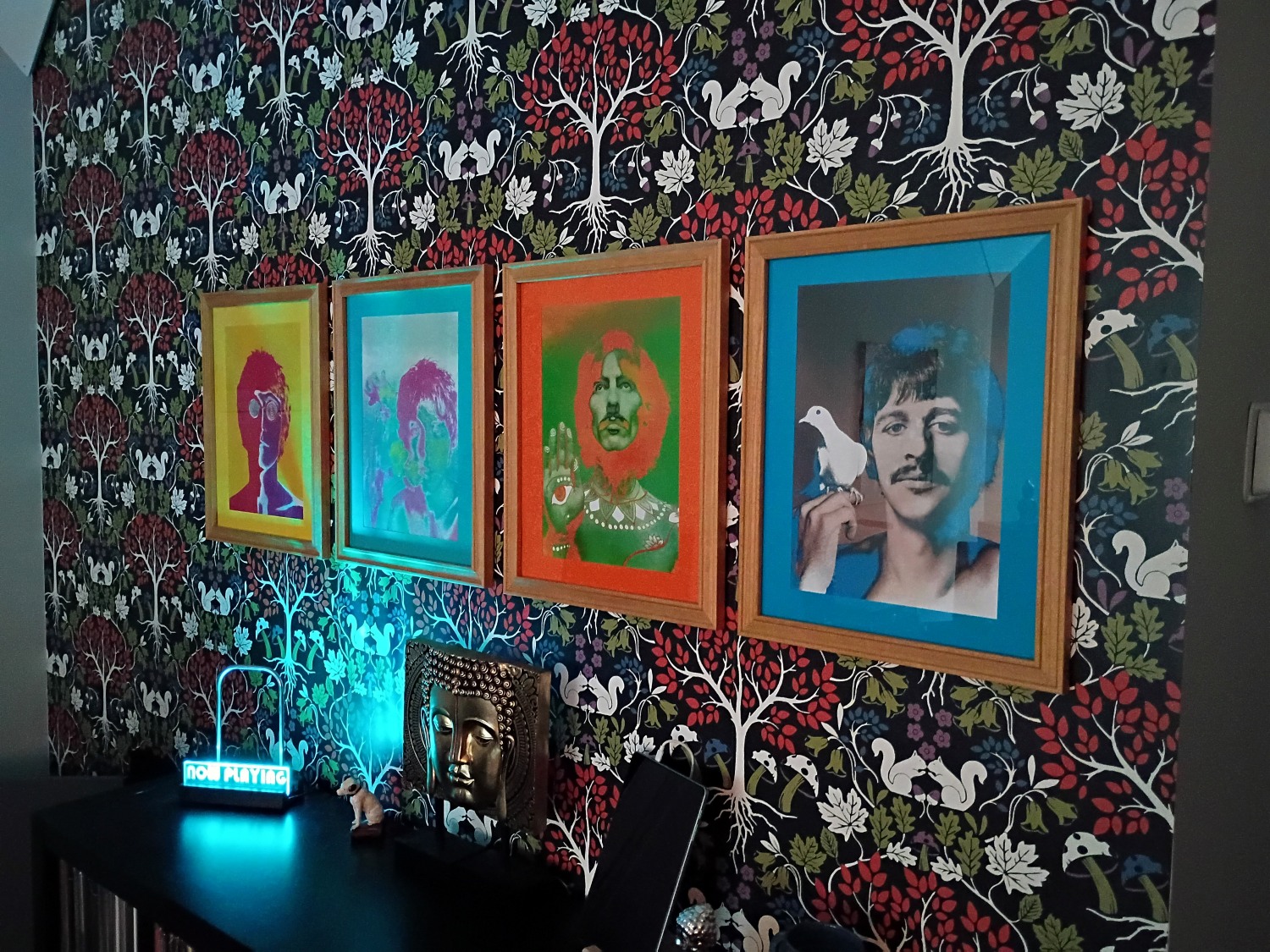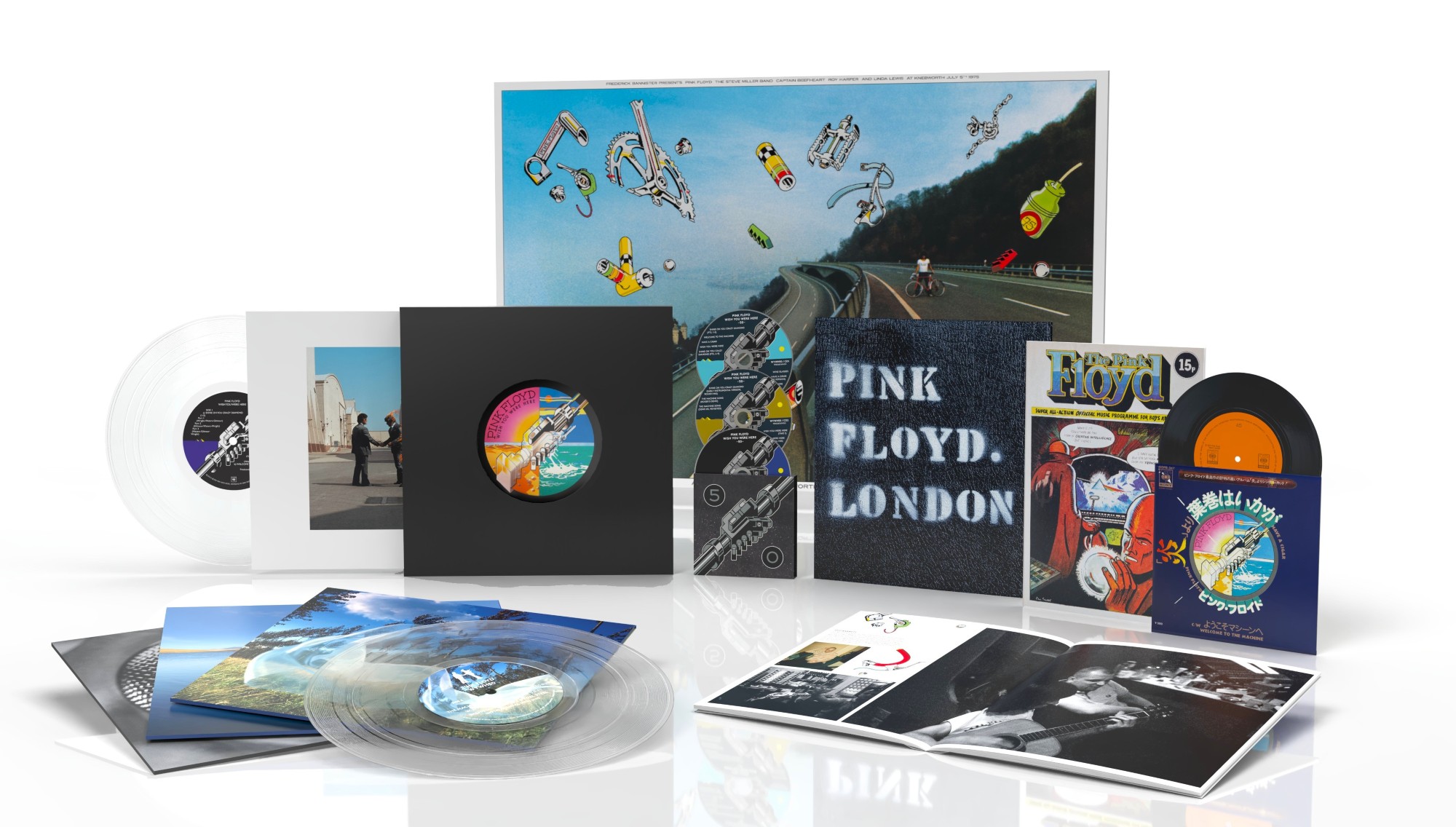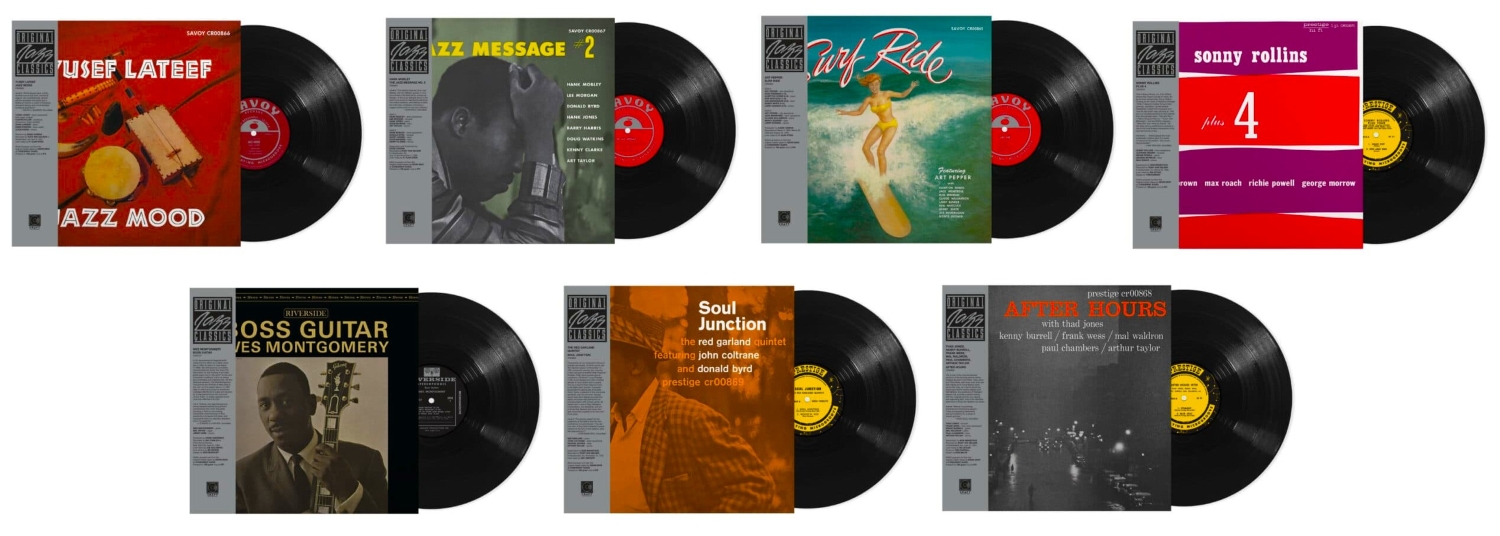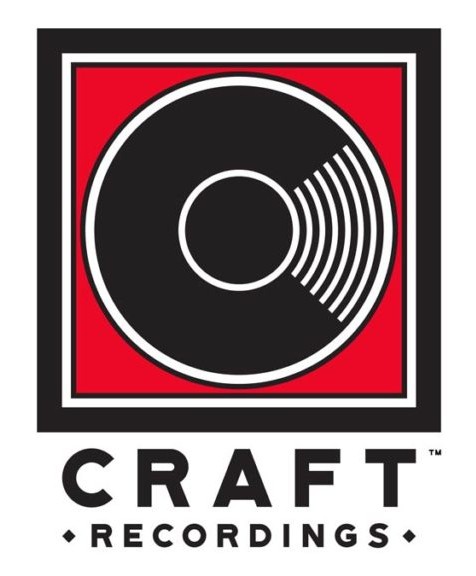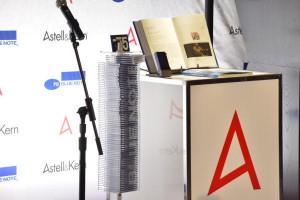Mobile Fidelity Sound Lab's ongoing release of Joni Mitchell's most iconic albums continues with her 1976 transitional masterpiece, Hejira, where her embrace of jazz idioms deepened far beyond her initial explorations in both Court and Spark (1974) and The Hissing of Summer Lawns (1975). Hejira is very much a road album of sorts, a musical travelogue that chronicles Mitchell's period of extensive peregrinations between late 1975 and into 1976. With songs drawn from her experiences on tour for The Hissing of Summer Lawns and her tenure in Bob Dylan's Rolling Thunder Revue. As well as an extended odyssey Mitchell undertook with a pair of friends, driving from LA to Maine, then meandering cross-country solo on the return trip. While I mostly adore every corner of Joni's diverse catalog of works, Hejira is the album I continually return to, and find the greatest solace in.
Hejira's UltraDisc One-Step LP set was sourced from the original analog master tapes, and was remastered using MoFi's proprietary GAIN 2 system by Krieg Wunderlich assisted by Shawn R. Britton at Mobile Fidelity Sound Lab in Sebastopol, California. The analog tapes were transferred to DSD 256, then lacquers were cut for LP production, which took place at Fidelity Record Pressing in Oxnard, California. The pair of 180 gram 45 rpm LPs were pressed on Neotech's Supervinyl at FRP, where both Rick and Edward Hashimoto oversaw every aspect of their production. UltraDisc's One-Step LPs are Mobile Fidelity's ne plus ultra analog statement format, and no expense is spared in their production.
The lavish packaging for all UltraDisc releases is created by Stoughton Printing in California. Each rice paper-sleeved LP gets inserted into a separate printed inner jacket; both are then encased within a heavy outer slipcase. Both the inner album jackets and outer slipcase are gold foil-stamped, which adds a distinctive touch. Crisp album cover artwork was sourced from Asylum Records, and a pair of heavily varnished, printed inserts contain Joni's song lyrics and replicate the original album's inner-sleeve art. All UltraDisc LPs are secured inside their inner jackets with gatefold paperboard sleeves to preserve their integrity; while preparing for playback requires a bit more effort to get to the LPs, it's a small inconvenience when you consider the level of protection provided by the packaging. Hejira is strictly limited to 3000 numbered copies worldwide; you can order one from MoFi's webstore HERE. If you're looking for high-quality digital playback, Hejira is also available as a limited, numbered-edition hybrid SACD.
Joni Mitchell, Hejira. (2) 45 rpm UltraDisc One-Step LPs, $125 MSRP
Hejira streeted in November 1976, and was Joni Mitchell's eighth studio album. Mitchell's dissatisfaction had been growing steadily with the rock session players typically hired for her recordings; their inability to effectively perform her music pushed her more headlong towards jazz musicians. That was never more evident than on Hejira. The recording sessions again took place at Hollywood's A&M Studios, with Henry Lewy and Steve Katz working together to engineer, record, and mix the album. Joni Mitchell played rhythm and electric guitar on all nine of the album's tracks; Hejira was also a departure for her—it was her first studio album where she didn't play piano or keyboards. And Joni's sweet vocal tone was gradually descending into lower registers, with years of heavy smoking beginning to show its effects. Larry Carlton was again featured on lead and acoustic guitars, Jaco Pastorius and Max Bennett alternated on bass, Victor Feldman added vibes, John Guerin was behind the drumkit, and Bobbye Hall's percussion rounded out the core group of players. Neil Young added harmonica to "Furry Plays the Blues," Abe Most played clarinet on "Hejira," and Chuck Findley and Tom Scott added horns to "Refuge of the Roads." Hejira peaked at number 12 on the Billboard album charts, and sold a half-million units, but was met with mixed criticism at the time of its release. Very few members of the press seemed to fully get what Joni was doing on Hejira, feeling the music was less accessible than on her previous albums.
While Hejira often conjures images of sprawling, barren landscapes, it also highlights the abstractions of Joni Mitchell's lyrics, and serves as a showcase for her use of unconventional and open guitar tunings. Along with the contributions of a stellar cast of musicians, especially those of guitarist Larry Carlton and the idiosyncratic improvisations of bassist Jaco Pastorius. Though Pastorius' trademark fretless bass only appears on four of the nine tracks, his inimitable tone creates the foundation upon which Mitchell layers her angular guitar work and impassioned vocals. And the incomparable fluidity of his bass playing sets the tonal palette for the entire album. I've been binge-listening to this record from its original release, and tracks like "Amelia," "Furry Sings the Blues" (with Neil Young's perfectly bluesy harmonica turn), "Song for Sharon" (I've listened to this tune countless times!), "Refuge of the Roads," and of course the singular pilgrimage that is "Hejira" have all regularly been part of my equipment evaluations. But more frequently just to sit back and contemplate life's many mysteries; on Hejira, Joni is perhaps at her most cerebral.
Listening to Mobile Fidelity's Hejira
You can see the full complement of components in my dual audio setups by clicking on my name in the header above. My all-analog system features a pair of LS3/5A standmount monitor clones from XSA Labs, running in tandem with a pair of Caldera 12 subs. My ProJect Classic EVO turntable is fitted with an Ortofon Quintet Bronze moving coil cartridge, and my PS Audio Stellar phono preamp plays into my PrimaLuna EVO 300 tube integrated amp, which was recently upgraded with RAY Reserve KT88 tubes. MoFi's UltraDisc of Hejira plays across this system as though Joni Mitchell is standing and singing in front of me—her voice is spookily present in the room!
The pair of 180 gram LPs from Fidelity Record Pressings were glossy and flawless, and provided exceptionally silent backgrounds during my listening sessions. Playback of the 45 rpm set required a bit more effort, with frequent side changes, but the improved groove geometry and increased speed offered Hejira a quality of sound that none of the LPs I had on hand could touch. That included my Asylum label original and Bernie Grundman's 2024 remastered reissue from Rhino's Joni Mitchell: The Asylum Albums (1976-1980). At the writing of my review for the box set last year I felt Bernie's 2024 remaster for Hejira was definitely the one, but MoFi's UltraDisc set is undeniably better, and in every possible way. Besides the astonishing level quiet during playback, the MoFi set has better clarity and an abundance of detail; Joni and her players occupy a very real place in the soundstage that spreads between, above, and beyond my loudspeakers. Hejira—in one form or another—has been in constant rotation in my systems over the last several decades, and that has extended to MoFi's UltraDisc since its arrival. Broken record, I know—but Mobile Fidelity's pressings are setting the gold standard others will be compared to.
Joni Mitchell's Hejira is undeniably my favorite from her catalog of albums
"Coyote" was the only single from Hejira, and also its lead track, but it didn't make much of a splash, reaching no higher than number 79 on the Billboard singles chart. It was my first exposure to Joni's new album in 1976, and created quite a stir in the music press based on rumors that linked her to actor Sam Shepard. I thought "Coyote" was pleasant enough, and obviously radio-friendly, but nothing could have prepared me for the rest of Hejira, which hit my sensibilities like a sledgehammer. Side one of the original LP held me spellbound, all the way through the sprawling title track, but when I flipped the record and "Song for Sharon" began playing—I sat motionless for the song's nearly nine-minute runtime. Then played it again, and again, and again—the song really struck a nerve with me, and it's become one of my acid test tracks for good stereo sound. It's a definite desert island tune for me, and has never played across any of my systems with greater realism and fidelity than on MoFi's UltraDisc LP.
Time has smiled upon Joni Mitchell's Hejira, and despite the lack of early enthusiasm from the critics, it's now recognized as a masterwork of her album catalog, and rightfully so. Bridget Citro Davis of Mobile Fidelity and Music Direct made this review possible—thank you so very much! If you're a fan of Joni Mitchell's or especially Hejira, go ahead and grab that credit card—you won't regret it! MoFi's UltraDisc One-Step set presents this album in its finest LP form ever—Hejira comes very highly recommended!
Mobile Fidelity Sound Lab
All images courtesy of Mobile Fidelity Sound Lab.




